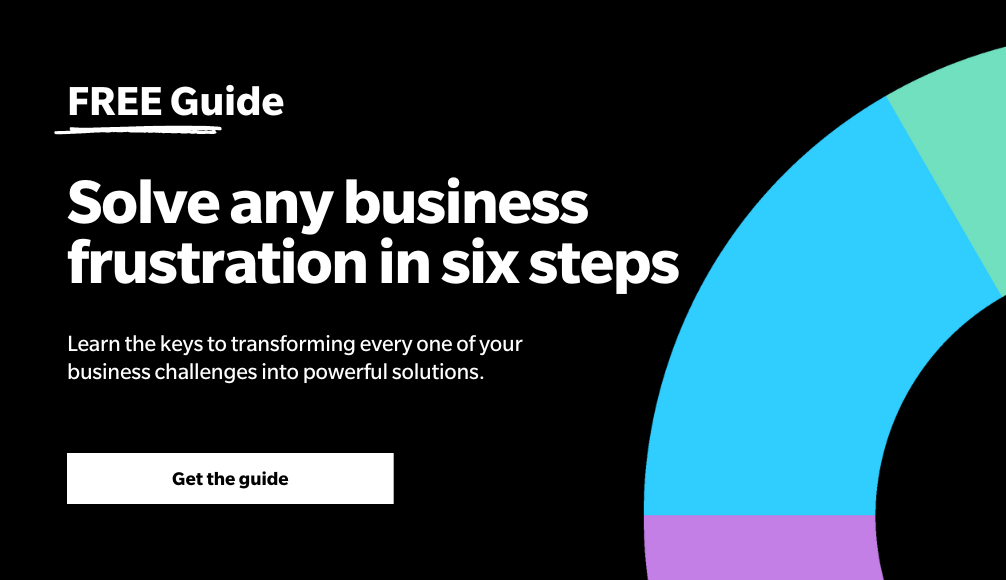How often do you experience frustration about something going on in your business? It can feel tempting to ignore frustrations, because they’re uncomfortable. You might rather put them on the back burner, even tolerate them as if they’re just the cost of doing business. When you ignore frustrations, you could be resigning yourself to the way things are, which is not the way you want them to be.
Pushing away your frustrations could be costing you valuable opportunities to fuel the growth of your business.
Here are four ways you can evaluate frustrations and decide when to take action.
1. Change your relationship to frustration.
Frustration is uncomfortable, there’s no getting around it. What’s your reaction when you feel frustrated?
Some people get angry, to let off the pressure. Others put it out of their minds. Maybe you paper over frustration with a hope that it’ll go away by itself.
These are all understandable reactions to frustration, but they’re not productive, because they focus on seeking relief from the feeling. They don’t do anything to solve the thing that frustrated you in the first place.
Try changing your relationship to frustration. Think of it as the source of true leadership: Leaders don’t let themselves stay satisfied with the status quo. They let problems bother them enough to do something about it.
So, instead of denying it or avoiding frustrations to make the feeling go away, use your frustrations to fuel change.Understand that whatever is making you feel frustrated is actually your wise, discerning, observant inner voice, trying to get your attention.
Don’t deflect. Listen up.
2. Be on the lookout for patterns.
If something frustrates you one time, it may be an isolated incident. It’s still worth noticing the feeling, but you might need more information before you respond.
If the same frustration happens again, that’s the start of a pattern. And if it happens a third time, trust that it’s not going away by itself.
This is a clear signal that there’s a missing or broken system somewhere that’s moved beyond just the frustration you’re feeling and could even be holding your business back.
3. Be aware of frustrations that sound like blame
There’s never any shortage of frustrating situations in a business. You can feel it about something you, personally, keep doing that you wish you could find a way to finally stop doing. You can feel it about the things other people do when you want it done differently. You can feel it about situations beyond your control, like bad weather or a power outage or inflation.
When your frustration takes the form of blame, you’re in unproductive territory. Blame never solves anything, it just keeps you stuck and can even pull you deeper into resentment. When you notice that you’re blaming someone or something for a frustration, try neutralizing the blame. A simple way to do that is to begin with the phrase, “I need a system for…” You’ll be surprised at how liberating this first step can be.
4. Keep a record of your frustrations
You’re busy. You probably have more frustrations than you know what to do with, and that’s the point. Keeping your frustrations in your head is overwhelming, inefficient and unproductive. You won’t remember them all until they happen yet again. You won’t be able to prioritize, and you can’t get anyone to help you with a problem that only you know about.
So, carry a notepad where you can jot frustrations down as they happen. Or get in the habit of recording a note for yourself or snapping a picture on your phone. Make a regular daily or weekly habit of going back through your notes so you can decide whether to take action, when, and how.
Don’t resign yourself to feeling the aggravation and discomfort of frustration. Instead of turning away, let your frustrations light the way to better business results.
If you'd like to discuss your frustrations, sign up for a free coaching session with us. It's the fastest way to get to the root of what's keeping you up at night and preventing you from showing up as the leader you need to be.





Comments